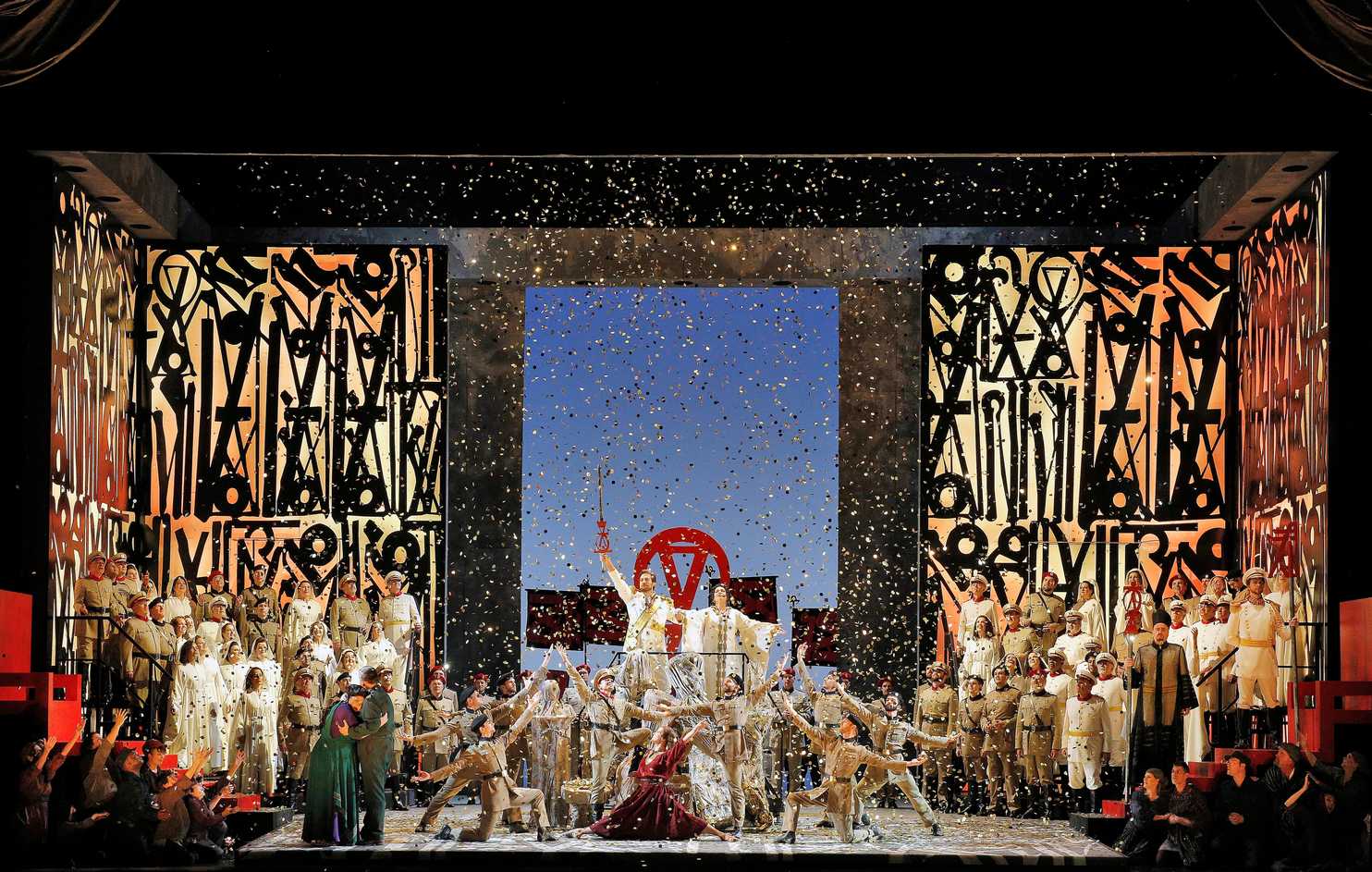Svadba-Wedding

When the long-awaited season announcement of San Francisco Opera's new Opera Lab endeavor finally arrived late last year it puzzled me. Instead of works like Thomas Adès'Powder Her Face, David T. Little's Dog Days, or something, anything by Kaija Saariaho, the schedule read like an assortment of odds and ends, with much of it seeming only tenuously connected to opera: performances of Schubert's Winterreise; live accompaniment to the film The Triplets of Belleville; concerts featuring musicians of the orchestra accompanying Adler Fellows; Deborah Voigt's one-woman show; and an acapella opera about a Serbian wedding. Voigt's work, which I'm looking forward to seeing, is as much a theatrical experience as an operatic one, leaving only Svadba-Wedding resembling anything close to what I was expecting.
Composed by Ana Sokolovic, Svadba-Wedding takes place on the eve of a young Serbian woman's nuptials. It's a light, contemporary piece with some darker emotional undercurrents, and the experience of watching it with an excellent cast is akin to crashing an exuberant, somewhat disorienting foreign bachelorette party. Sokolovic's vocal score relies nearly much on sounds as well as words for effectiveness, and her success makes one want to hear more of her music in other contexts. San Francisco Opera's Opera Lab production was charming, and Michael Cavanagh's direction made good use of the versatility of the Opera's new Taube Atrium Theater, placing the action in the center of the room as well as taking it to every corner, with the audience seated at round tables as if they were at a wedding reception. Conductor Dairine Ni Mheadhra followed the singers around the room, and while it wasn't immersive, the movement created a sense of intimacy mirroring the music and story, the latter of which includes a dramatic arc that reaches a dazzlingly rendered conclusion that's built into the stage instructions.
Much of the cast for this production participated in the 2013 US premiere at Opera Philadelphia, led by Jacqueline Woodley as bride-to-be Milica, along with Laura Albino, Andrea Ludwig, and Krisztina Szabo. The cast also featured Liesbeth Devos and Pauline Sikirdji, who blended in seamlessly, also having sung the piece before. Their experience with it paid off as they successfully navigated Sokolovic's various vocal tricks (mimicking the sound of stirring ice in a glass among other effects, plus dozens of whoops, trills, and clicks used to convey various actions and emotions), with what looked like ease but sounded quite the opposite. The score relies almost entirely on their voices, with only occasional accompaniment (accents, really) provided by a glockenspiel, rain sticks, and percussive effects.
Svadba-Wedding is an unusual work, but its sense of daring is undercut somewhat by its subject. That's a nice bit of subversion, which pokes its head out in surprising ways, and its surface pleasantness conceals some darker questions about the women of the story, and, if one wants to look for it, the state of contemporary chamber opera: here's a piece that's (relatively) easily produced with minimal costs -- no orchestra needed, a small cast, and a setting that's adaptable to myriad configurations, which as it turns out here, doesn't even need an actual stage to work. As traditional operas become increasingly difficult to mount because of costs and changing audience demographics make it harder to fill large halls, this might be what the future of the art form looks like.
The inaugural season of the Opera Lab seems designed as a kind of trial run for what the company and Opera Lab's Director of Programming Elkhanah Pulitzer can do within the Taube Atrium Theater, and now having seen it I can understand why -- there are a lot of possibilities and experimenting with them might take some time, which is what a labshould do. From that perspective, this season's programming makes more sense. The recent announcement that next year's productions will include Ted Hearne's The Source(an oratorio about Chelsea Manning), and Anna Caterina Antonacci in Poulenc's La Voix humaine, bodes well for where Pulitzer is heading with this experiment, indicating San Francisco Opera is about to fill in some gaps the company has left others to fill for too long. Among all the recent experiments launched by the Bay Area's premiere performing arts organizations (SF Symphony's SoundBox, San Francisco Performances' Pivot series, Cal Performances' RADICAL, and SF Ballet's Sensorium), Opera Lab has the potential to make the largest impact. I suspect the experiment will succeed.
If you liked this, like A Beast on Facebook for more.





